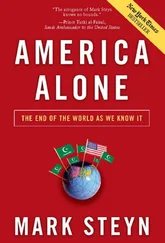Mark Rich - Impossible Alone
Здесь есть возможность читать онлайн «Mark Rich - Impossible Alone» весь текст электронной книги совершенно бесплатно (целиком полную версию без сокращений). В некоторых случаях можно слушать аудио, скачать через торрент в формате fb2 и присутствует краткое содержание. Год выпуска: 1995, Издательство: Dell Magazines, Жанр: Фантастика и фэнтези, на английском языке. Описание произведения, (предисловие) а так же отзывы посетителей доступны на портале библиотеки ЛибКат.
- Название:Impossible Alone
- Автор:
- Издательство:Dell Magazines
- Жанр:
- Год:1995
- ISBN:нет данных
- Рейтинг книги:5 / 5. Голосов: 1
-
Избранное:Добавить в избранное
- Отзывы:
-
Ваша оценка:
- 100
- 1
- 2
- 3
- 4
- 5
Impossible Alone: краткое содержание, описание и аннотация
Предлагаем к чтению аннотацию, описание, краткое содержание или предисловие (зависит от того, что написал сам автор книги «Impossible Alone»). Если вы не нашли необходимую информацию о книге — напишите в комментариях, мы постараемся отыскать её.
Impossible Alone — читать онлайн бесплатно полную книгу (весь текст) целиком
Ниже представлен текст книги, разбитый по страницам. Система сохранения места последней прочитанной страницы, позволяет с удобством читать онлайн бесплатно книгу «Impossible Alone», без необходимости каждый раз заново искать на чём Вы остановились. Поставьте закладку, и сможете в любой момент перейти на страницу, на которой закончили чтение.
Интервал:
Закладка:
Impossible Alone
by Mark Rich

Illustration by Randy Asplund-Faith
The most powerful person in the Solar System cadged a drink off me.
“Simon!” I said. Even on a low budget myself I willingly pulled out a ten to cover the next round. “What’s it been, sixteen, seventeen years?”
“That many?”
“You skipped that last cluster reunion.”
We graduated a year apart in the late nineties from Beloit, me with a degree in biochemistry that led to cell work on amphibians, he with a combined degree in physics and chemistry that led him on a zig-zag course after several higher degrees from MIT: first a NASA lackey, second a consultant for several top contractors, and then head of one of the largest aerospace companies on the globe, Kunz, with reputedly as many assets in Russia and China as in the U.S.
He nodded acquiescence. “So I did.”
“So what’s up for the trillionaire these days?” I hatched in my head a dozen leading questions—not that I wanted to take advantage of an old friend, but out of honest curiosity—I think it was honest—as to whether Kunz Corp had a philanthropic arm that would help fund my area of research.
He shook his head. “So people still think I’m a trillionaire.”
“Well, sure. You are, aren’t you?”
“I suppose it looks like it on paper, if you hold the paper upside down.”
“But don’t you have a center down in Sarasota you built only a few years back? And someplace up in Norway?”
He nodded. “But it means nothing, Bob. If I went the way you did—I mean, you’re still scrambling for grants, aren’t you? And living off an academic salary part of the year? If I did it your way I’d be better off now. Hell of a lot better.”
“But these buildings, whole industries at your beck and call—”
“When you have massive debt, you can always go deeper. And deeper. And deeper. Debt’s the only bottomless pit.”
I looked at the beer in front of him, bought with my five bucks, with new understanding. It also finally registered that this was no classy hotel in whose bar we happened to find each other. My presence indicated as much.
“You’re broke?” I said. I imagined reading the information in alumni news and decided it would never happen. The alumni editor put a bright cast on everything.
“Technically, no. In real money terms, absolutely.”
“My god, what happened?”
“I’m not sure I should say.”
“Come on, fess up. Give me a capsule version at least.”
“Capsule version? It still won’t be easy for you to swallow, I bet. But I’ll tell you this much. You know the collapse of efforts to get out of our gravity well? I don’t mean stuff to the Moon. That’s all nearby stuff, and money’s pouring into that like it won’t stop. I mean efforts to get away from here. Venus. Mars. Especially Mars.”
“You were big into Mars.”
“Kunz Corp was Mars. Nothing else. I piled everything into it. Absolutely everything. I took a bet.”
“And lost.”
“Lost big. The States pulled out when Congress hogtied NASA and Sands Offplanet into the Moon junkets. And when the States pulled out, Global Spacenet sucked in its gut and looked to the Moon, too. Sure, I could use what I have for Moon work. But all the long-range stuff we’d developed—kaplooey! We have a couple trillion in hardware sitting in Florida. Rocket technology, life-support technology, radiation-shielding technology. My couple trillion. It’s all wrapped up in stuff we can’t use. But that’s the nature of the gamble, isn’t it? It wouldn’t be the future if we could predict it.”
“But what about the new businesses of the last few years?” I’d heard about something having to do with biotech.
“That’s longer ago than a few years, Bob.” He gave me an odd smile, then shrugged. “I’m pretty much a sunk boat, unless this Green Spot stuff makes people force Congress’s hand.”
I thought about it. “It would take that, wouldn’t it? Public mandate, that kind of thing?”
He nodded.
The Green Spot had become big news the year before: an area of anomalous coloration had appeared on the surface of the Red Planet adjoining one of the polar caps. It had grown appreciably in the time since its discovery. The latest of the Observer series inconveniently went haywire, as did the prior one, meaning that the best near-space photos came from Earth-orbit and Moon-based telescopes—good images, it was true, but not good enough.
The images agreed in one respect, at least: that the Green Spot looked tantalizingly like evidence of plants. Life.
“It sounds like there could be a quick reversal of public opinion, the way the tabloids are going,” I said. “Life on Mars. That’s all it takes, isn’t it, to get people furious to have manned exploration?”
He shrugged. “I’m hoping. Believe me, I’m hoping.”
He asked about my current project. Somehow we passed the next couple hours talking about that. He even showed a fair grasp of some of the topics I’ve been tackling, which helped, and which made me wonder exactly how far he had gotten into biotech.
My main concern has to do with ecostrophism. While it isn’t a word people use everyday, it preoccupies me a great deal.
Ecostrophism refers to the influence an organism has on environment: literally, it’s the measure of how “home-turning” an organism is. Every living thing “turns” its home from what it was, making it into a new thing, a new place, a new environment. Corals make atolls into the fantastically rich biotic regions they are. Grasses make the plains what they are. Voles and mice dig tunnels in the grasses, opening new pathways for snakes and insects; beetles leave droppings fed upon by bacteria; fungi in the soil make it possible for a seed to germinate, the plant which makes an environment suitable for a set of moths and butterflies to propagate, which in turn makes it an environment more suitable for birds and bats. The world turns and turns. Everything affects everything else.
Humanity tends to be more ecostrophic than most species, it’s true; and technological humanity gets carried away with it the same way humanity gets carried away about all things. To mention just one minor indicator of this: the neologism “eco-tastrophe” entered the language long before the more useful term “ecostrophism” did.
My difficulty lies with choices. How far should we exert this ecostrophism, once we realize that all our actions have implications within the “natural” world? My particular area of study has led to a development potentially of great importance to all amphibious life of the planet, with the possible exception of some legless and purely aquatic forms that rarely see direct sunlight.
I have engineered the better frog.
I should say I engineered the better frog skin. Frog populations dropped drastically the last two decades of the Twentieth, in part due to pollutants and in part to ozone decrease. Unscreened sunshine fries the tenderskinned animals, at least it does when flushes of acidic snowmelt in spring haven’t already kept the tadpoles from maturing into adults. A better skin seemed in order, one that would deal better with the Sun—reptiles had learned that trick long ago, and thrived in niches shared only with periodically appearing toads—and better with pollutants, too, if possible.
Once I had the skin, though, the question became which amphibia should I help? And where? And should I do it at all? It became not a question of whether I should try to save amphibians—the answer to that being an unequivocal Yes—but whether I should risk entire ecosystems. I was pondering the introduction of an unknown factor into some of the most delicate ecosystems known to humankind—limpid freshwater pools. How could I do it?
Читать дальшеИнтервал:
Закладка:
Похожие книги на «Impossible Alone»
Представляем Вашему вниманию похожие книги на «Impossible Alone» списком для выбора. Мы отобрали схожую по названию и смыслу литературу в надежде предоставить читателям больше вариантов отыскать новые, интересные, ещё непрочитанные произведения.
Обсуждение, отзывы о книге «Impossible Alone» и просто собственные мнения читателей. Оставьте ваши комментарии, напишите, что Вы думаете о произведении, его смысле или главных героях. Укажите что конкретно понравилось, а что нет, и почему Вы так считаете.












